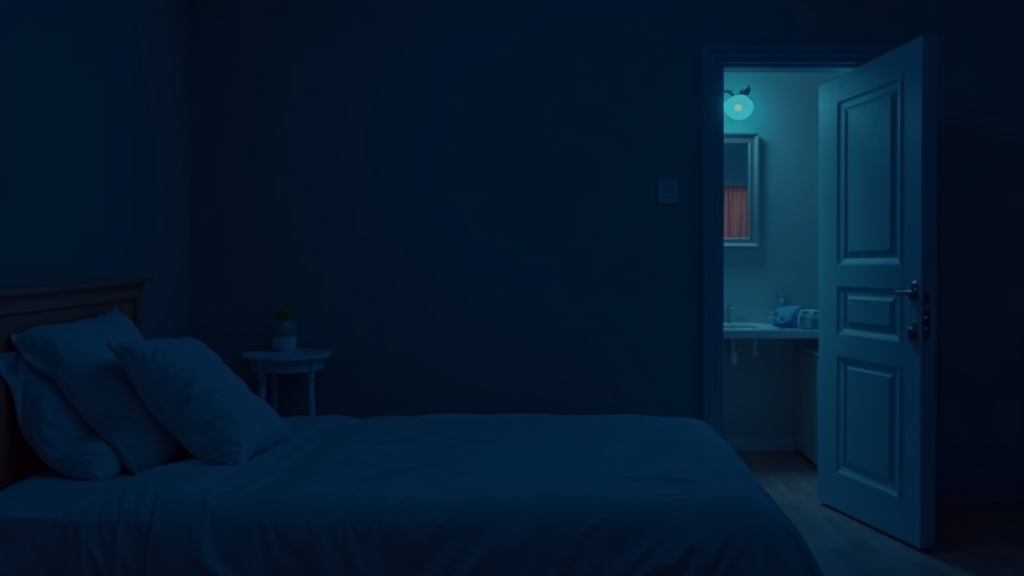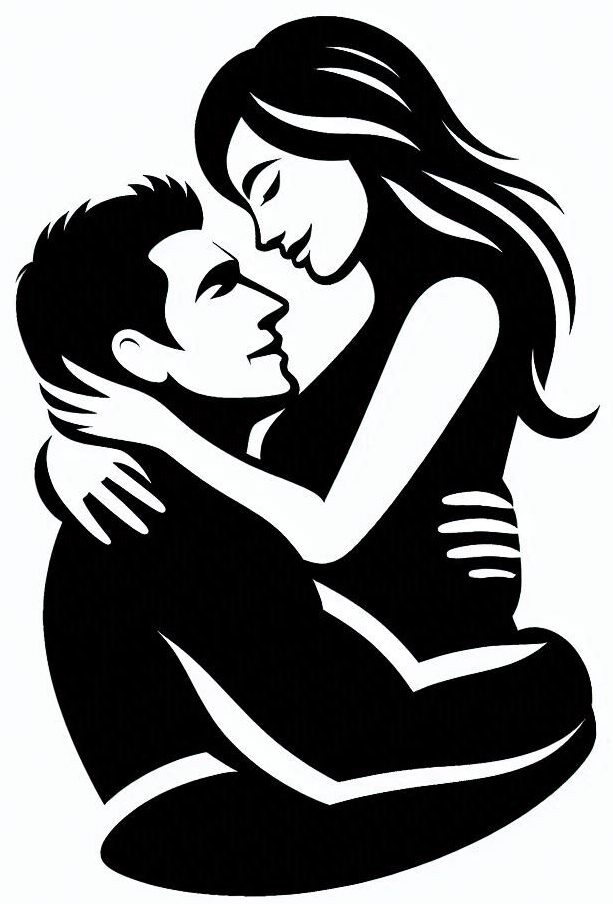Frequent nighttime urination, also called nocturia, is something many guys brush off as a minor annoyance. But waking up several times each night to use the bathroom isn’t just bad for sleep—it could be one of the first signs that other things aren’t quite right. One of those issues (and this surprises a lot of people) is erectile dysfunction, or ED for short. In this article, I’ll explain why waking up so often to pee could point toward bigger bedroom problems, what the research says about this connection, and a few practical tips if this sounds familiar.

Understanding Nighttime Urination (Nocturia)
Most people can sleep six to eight hours without needing to get up. Needing to pee once isn’t really a reason to worry, but if it’s happening several times every night, it’s called nocturia. This can mess with sleep, cause grogginess, and make mornings rough. The causes aren’t always obvious, either. It can be the result of drinking too much before bed, but it’s also linked to things like an overactive bladder, enlarged prostate, or certain medications.
When it happens often, nocturia can signal other health problems, especially with the heart, the kidneys, or the blood vessels. Since erections and urination both involve blood flow and nerve signals, it’s not all that surprising that these two issues might overlap. For many men, early intervention on nocturia can help spot hidden concerns before they spiral.
How Nighttime Urination Connects to Erectile Dysfunction
There’s a growing pile of studies that show a real connection between frequent nighttime urination and erectile dysfunction. Both situations often point toward trouble with circulation or nerve function. Here’s how they might link up:
- Reduced Blood Flow: If blood vessels aren’t working well enough to support normal bladder function, the same problem often affects blood flow needed for erections.
- Hormonal Imbalance: Conditions like low testosterone or changes in hormones that affect both urination and sexual function can make both issues show up at the same time.
- Prostate Issues: An enlarged prostate (BPH) or prostate inflammation can trigger both more nighttime bathroom trips and make erections less reliable.
- Nerve Problems: Diabetes and related conditions mess with nerves, causing both nocturia and ED.
Doctors are beginning to use frequent nighttime bathroom trips as a warning sign to check for other health problems, including ED.
Some men see changes in both urination and sexual health before any other health conditions become obvious. Paying attention early helps in getting ahead of the curve.
Main Causes Behind Both Nocturia and ED
Frequent urination at night and erectile dysfunction are both more likely as guys get older, but age isn’t the only factor. A few of the most common medical links include:
- Cardiovascular Problems: High blood pressure, high cholesterol, and general artery stiffness hurt both sexual health and bladder control. The same narrowed arteries can block blood from reaching both the pelvic organs and the penis.
- Metabolic Diseases: Diabetes is a big one here. It damages small blood vessels and nerves, making nocturia and ED much more common.
- Sleep Disorders: Things like sleep apnea cause frequent waking, which can lead to nighttime bathroom trips and also lower testosterone—a bad combo for sexual function.
- Medications: Certain high blood pressure or depression meds cause both nighttime urination and ED as side effects.
Getting a sense of the cause is half the battle in getting things back on track. Talking to your doctor about new symptoms makes it easier to avoid setbacks down the line.
What Science Says About Nighttime Urination and ED
The link between nocturia and ED isn’t just talk; there’s actual research backing it up. Studies have found that men who wake up to pee more than once or twice a night are more likely to report erectile problems. Researchers think of the bladder and erectile tissues as being kind of like warning systems—when something happens to one, you should check the other too.
One large study published in “The Journal of Urology” tracked thousands of men and noticed that those with frequent nocturia had a higher risk for moderate to severe ED. Scientists didn’t find that nocturia directly “causes” ED, but the overlap was clear. The likely culprit is shared problems like cardiovascular disease, hormone imbalance, and chronic inflammation.
In simple terms, if you notice you’re up more often at night for bathroom runs, it’s worth paying attention to your sexual health too. Sometimes, tracking sleep and urination patterns over a few weeks can make it easier to spot patterns worth bringing up with your healthcare provider.
What To Watch For: Other Symptoms You Might Notice
Most guys don’t go straight from a perfect night’s sleep to full-blown nocturia and ED. There are often smaller symptoms that pop up first. Here are a few things I always tell friends to look out for:
- Waking up at night more than once to pee
- Weaker urine stream or dribbling
- Trouble starting urination or needing to push
- Feeling tired or unrefreshed after sleep
- Decreased sexual desire or occasional performance issues
- Mood changes or higher stress levels
If more than one or two of these sound familiar, it’s worth a check-up. Getting ahead of things early is always better than letting symptoms pile up. For men with family history of prostate or cardiovascular problems, earlier screening can help lower future risk.
Practical Steps to Improve Both Nocturia and Erectile Function
Sometimes, making small lifestyle changes can help both your sleep and your sexual health. Here’s what I’ve found helpful:
- Moderate Your Fluid Intake Before Bed: Try having your last drink of water or tea two hours before going to sleep.
- Cut Back on Caffeine and Alcohol: Both of these can irritate the bladder and affect erections. It might help to swap out late-night coffee or beer for herbal tea or water earlier in the evening.
- Boost Physical Activity: Getting regular exercise is vital for circulation, hormone balance, and general health. Even a simple walk after dinner each day can help.
- Eat Smart: Focus on foods that support heart health—lots of greens, healthy fats, and lean proteins. Mediterranean-style diets are widely popular for this.
- Manage Stress: Anxiety and stress are common drivers of both ED and bladder problems. Mindfulness techniques, deep breathing, or talking to a counselor can make a difference.
- Check Your Meds: If you’re on any regular medication, talk to your doctor about possible side effects, especially if nocturia or ED started after a prescription change.
If you want to try natural options, there are some organic supplements specifically for erectile function that lots of guys find helpful. You can check out some options at this link. It’s always smart to pair supplements with the basics—diet, movement, and healthy sleep—rather than use them alone.
Details on Supplements and Natural Remedies
Many people like to try natural supplements for both urinary symptoms and sexual function. Some of the best researched options include:
- Saw Palmetto: Often used for prostate health, which relates to both nocturia and ED.
- Larginine: Supports blood flow, which is super important for normal erections and bladder health.
- Pygeum: Traditionally used for urinary health, especially in men.
- Ginseng or Maca: Both support sexual health and energy levels for some people.
You can explore more natural and organic remedies through this resource if you want to try some options that are easy to add into your routine. Even with supplements, checking in with a health pro makes sense if symptoms stick around. Also, remember some supplements interact with meds—so it’s worth a quick chat with a doctor first.
Common Questions About Nighttime Urination and ED
Here are a few questions I get a lot whenever this topic comes up:
Q: If I wake up to pee every night, should I be worried about ED?
A: It’s not something to panic over, but it’s worth paying attention. Frequent nocturia is linked with a higher risk of erectile problems. Even if you’re not having issues now, it’s a sign to check on your heart and hormone health, as well as talk openly with your healthcare provider.
Q: Can fixing my sleep help with erectile function?
A: Better sleep helps almost every part of your health. Poor rest can lower testosterone and make everything from stress to circulation worse. Good sleep routines and addressing nighttime waking can help sexual health, too. If you struggle to stay asleep, keeping a consistent bedtime schedule can help reset your body clock.
Q: Are meds causing my issues?
A: It’s possible. Some blood pressure and antidepressant meds list both nocturia and ED as potential side effects. Bring it up with your doctor before changing anything. Making a list of all meds, including over-the-counter ones, makes these conversations more productive.
Wrapping Up: Why Paying Attention Matters
Frequent nighttime urination isn’t just about lost sleep—it’s a useful signal that your body might need some extra support. Since nocturia and erectile dysfunction often show up together, taking steps early, improving daily habits, and keeping an eye on supplements can make a real difference. If you’re noticing both symptoms, don’t put it off. Medical professionals can help figure out what’s going on, and for those looking for natural support, check out organic supplement options here. Better sleep and a healthier sex life are both worth the effort. Remember, even small changes can add up to bigger gains over time, so taking that first step is key.
